Welcome to the Lunchtime Series!
The lunchtime series are informal talks by scientists, artists, designers, and other (awe-)inspiring folks that we host in our group.
Time & Location: HCI Library (Seminarraum 187 - Argentinierstr. 8, 2nd floor) 12:15-13:00
If you would like to join online, email Astrid at astrid.weiss@tuwien.ac.at and she will send you a Zoom link!
Upcoming
Nadine Wagener, Friday(!), 6th March 2026: Everyday Self-Care with Technologies

Abstract: It is up to us to take charge of our own physical and mental health. Places for therapy are scarce, we often struggle with the fast-paced lifestyle, and statistically one in six people struggle at least once with major mental health challenges in their life. How can we face those challenges, leveraging technologies that we already use in our everyday life? One still rather new technology that has great potential is Virtual Reality (VR). But how should VR be designed to open up new interaction methods for us to take care of our own health and well-being? Should it be designed at all? How can it be used at home to support very specific personal needs? These and more questions will be explored in this guest talk by Dr. Nadine Wagener. She will introduce some of her work on designing VR for expressing own emotions and reflecting on personal data, how to integrate sensory and haptic input for those use cases, and share her thoughts on how real and multisensory a virtual environment should be to provide engaging and effective experiences. Based on her publications, current ongoing projects and ideas for future research that she will present, Nadine hopes to inspire the audience to think beyond typical technologies for self-care.
Bio: Nadine Wagener is passionate about HCI research, in particular about broadening the use cases of Virtual Reality (VR) to encompass wellbeing and mental health support. Nadine has explored the design space of VR for self-care and mental well-being, integrating haptic feedback, wearables, multi-sensory and multi-user approaches in her research. She is currently Groupleader at OFFIS – a research institute for informatics in Oldenburg, Northern Germany. Before, she was a postdoctoral researcher at the Max Planck Institute in Saarbrücken, Germany, and at Cornell Tech in New York. She graduated in June 2024 after doing her PhD at University of Bremen, Germany, being supervised by Prof. Dr. Johannes Schöning from University of St. Gallen, Switzerland, and Prof. Yvonne Rogers from UCL London.
Sofia Thunberg, Tuesday, Jan. 20, 12:15
Companion Robots for Care
Abstract: As robotic technologies become increasingly integrated into care settings, it is critical to assess their impact within the complexity of real-world contexts. This talk will present on two use cases with companion robots: in care homes for older adults and in specialist dental care for children with autism. These cases highlight significant individual variation in how the robot was experienced, shaped by context, timing, and emotional state. The robot’s role was not universally positive or passive; its effectiveness depended on how it was integrated into personalised care strategies with high involvement by caregivers.
Bio: Sofia Thunberg is a postdoctoral researcher at Chalmers University of Technology and University of Gothenburg and holds a PhD in Cognitive Science. Her research is in human-robot interaction and critical robotics, and her interests are at the intersection of where social robots meet care.
Looking for more food for thought? Katta Spiel organised an academically acclaimed public lecture series online that we highly recommend: Critical Perspectives – recordings of selected lectures from this series are available on YouTube.
Past Talks
Iz Paehr, Tuesday, Oct. 7, 12:15
Location: FB 0110, Gußhausstr. 30, 1st floor (Directions)
Playtest: Crip Tactile Descriptions
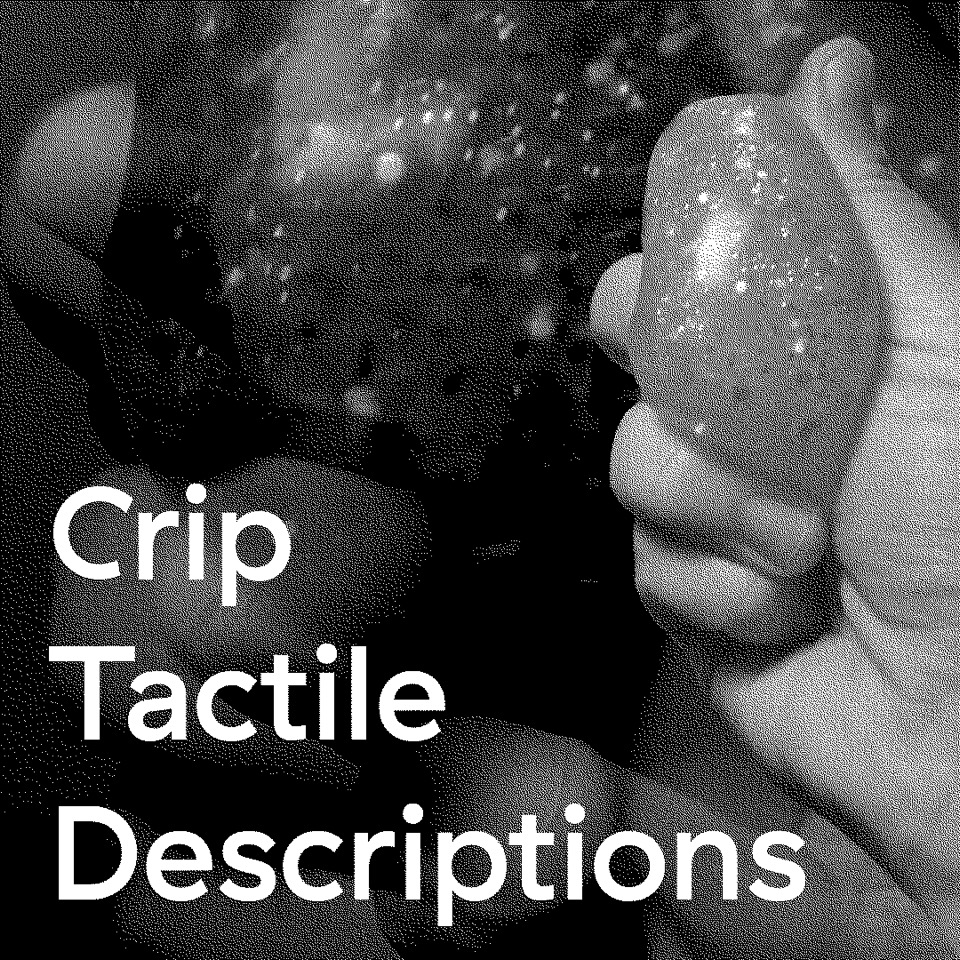
Abstract: In this playtest / workshop we will experiment with the access practice of writing tactile descriptions. A tactile description puts experiences of touch into words. It communicates how it feels to touch, be touched and be in touch with a touchthing, while also asking if there ever is such as thing as a thing. Tactile descriptions sit close to other access practices such as visual descriptions, and work against the grain of what DeafBlind poet John Lee Clark calls distantism: the privileging of senses that work at a distance. In this playtest we will try out my tactile descriptions workbook, and collect our access desires for this emerging practice.
Join in to get in touch with touch, and bring any stimmy, bouncy, textured.. objects that you would like to feel along with.
Bio: Iz Paehr works as an artist-designer touching access, criptastic hacking and trans*feminist world building. Their experiences as a disabled person inform their work and drive their desire for furthering Disability Justice through critical technological practice. Currently, they are designing haptic virtual interfaces. Iz lives in Berlin and can be found online via izpaehr.xyz.
Enka Blanchard (they/them), Sept. 16th, 12:15
Tidbits of quantitative disability research

Abstract: Most of (critical) disability studies follows either theoretical or qualitative methodologies. After a short discussion on the epistemological and political consequences of such practices, we will give an overview of what can be done using quantitative and mixed tools in a variety of settings, based on my most recent and ongoing research. We will cover the following: how disabled mobilities follow a discrete rather than continuous paradigm and the link between small quantitative differences and large qualitative outcomes, the relationship between aesthetics and the inertia in designing accessible buildings, how graph models can help explain disabled mobilities on a local scale, the barriers to international disabled mobility (including for tourism). Most of the talk will consider disability in an abstract way and without assuming any specific impairment, albeit with a small focus on wheelchair users.
Bio: After studying mathematics and computer science at the ENS Paris and the University of Paris and a 2019 Ph.D. thesis on the human aspects of security, Enka Blanchard initially focused on voting systems (showing vulnerabilities in the three main 2022 French presidential primaries, different kinds of fraud in the 2024 Moscow election, and creating new designs for usable verifiable voting systems). Most of their work is spurred by a perception that both our epistemological groundings and our societal impacts are not sufficiently discussed (especially in highly technical fields) and involves critiquing standard research practices (which recently led them to chair the 2026 Undone Computer Science conference). Besides security, they have since added a second main focus to their work by looking at geographies of disability, with a focus on how discrete mathematics can bring new insights into the field.
They are currently a permanent researcher at the CNRS (French National Centre for Scientific Research) at the Center for Internet and Society in Paris, and at the Polytechnic University of Hauts-de-France in Valenciennes, where they are also pursuing a second PhD in geography supervised by Jacques Lévy. All their work is freely available at their website koliaza.com.
Zachary Daus, June 17th, 12:15
Personalized Patient Preference Predictors, Being Towards Death, and Liberal Autonomy
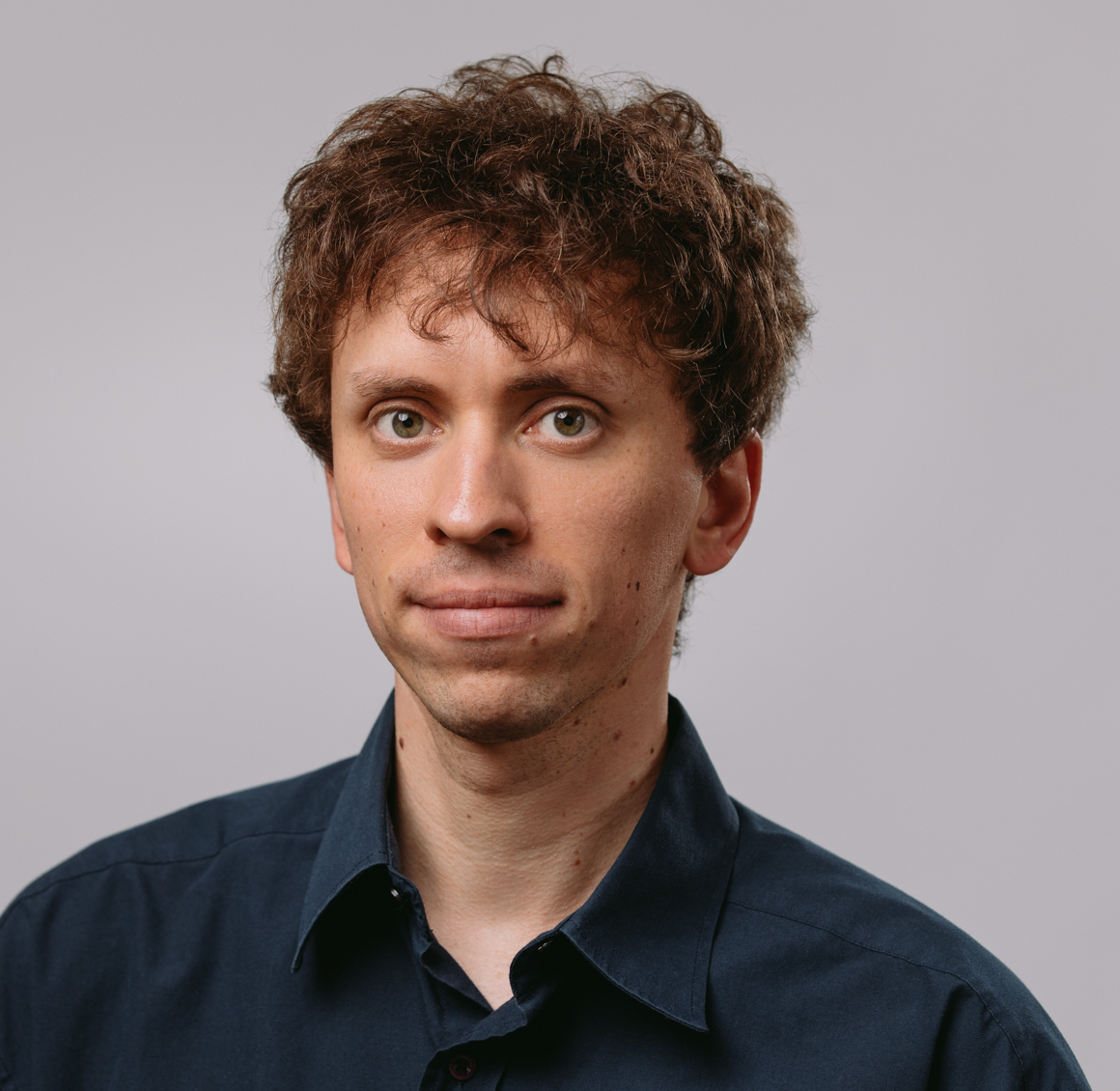
Talk abstract: As artificial intelligence continues to evolve, new technologies are being proposed to enhance end-of-life decision-making. One such innovation is the “Personalized Patient Preference Predictor” (P4), which uses large language models trained on an individual’s digital footprint—emails, social media, and more—to forecast their healthcare preferences if they become incapacitated. Advocates claim this method could better respect patient autonomy than traditional tools like advance directives or surrogate decision-makers.
In this talk, I will challenge that view. Drawing on existentialist philosophy and liberal theories of autonomy, I argue that tools like P4 risk undermining the very autonomy they aim to preserve. By offloading the responsibility of articulating one’s values and end-of-life preferences, these systems may bypass a crucial process: the personal confrontation with mortality. Far from being a mere administrative step, this act of reflection fosters self-knowledge, helps individuals distinguish meaningful goals from socially conditioned ones, and ultimately deepens autonomy.
Short Bio: Zachary Daus is a doctoral candidate at Monash University in Melbourne, Australia whose research focuses on the ethics and philosophy of technology. He is currently writing a dissertation on the ethical implementation of artificial intelligence in healthcare under the joint supervision of Robert Sparrow and Patrick Kwan. He is particularly interested in philosophical issues surrounding the alignment of artificial intelligence with liberal political values. Prior to Monash University he studied at the University of Vienna, where he wrote a master thesis on the applicability of Hannah Arendt’s political philosophy to the ethics of technology under the supervision of Mark Coeckelbergh.
Emanuel Gollob, April 15th, 12:15
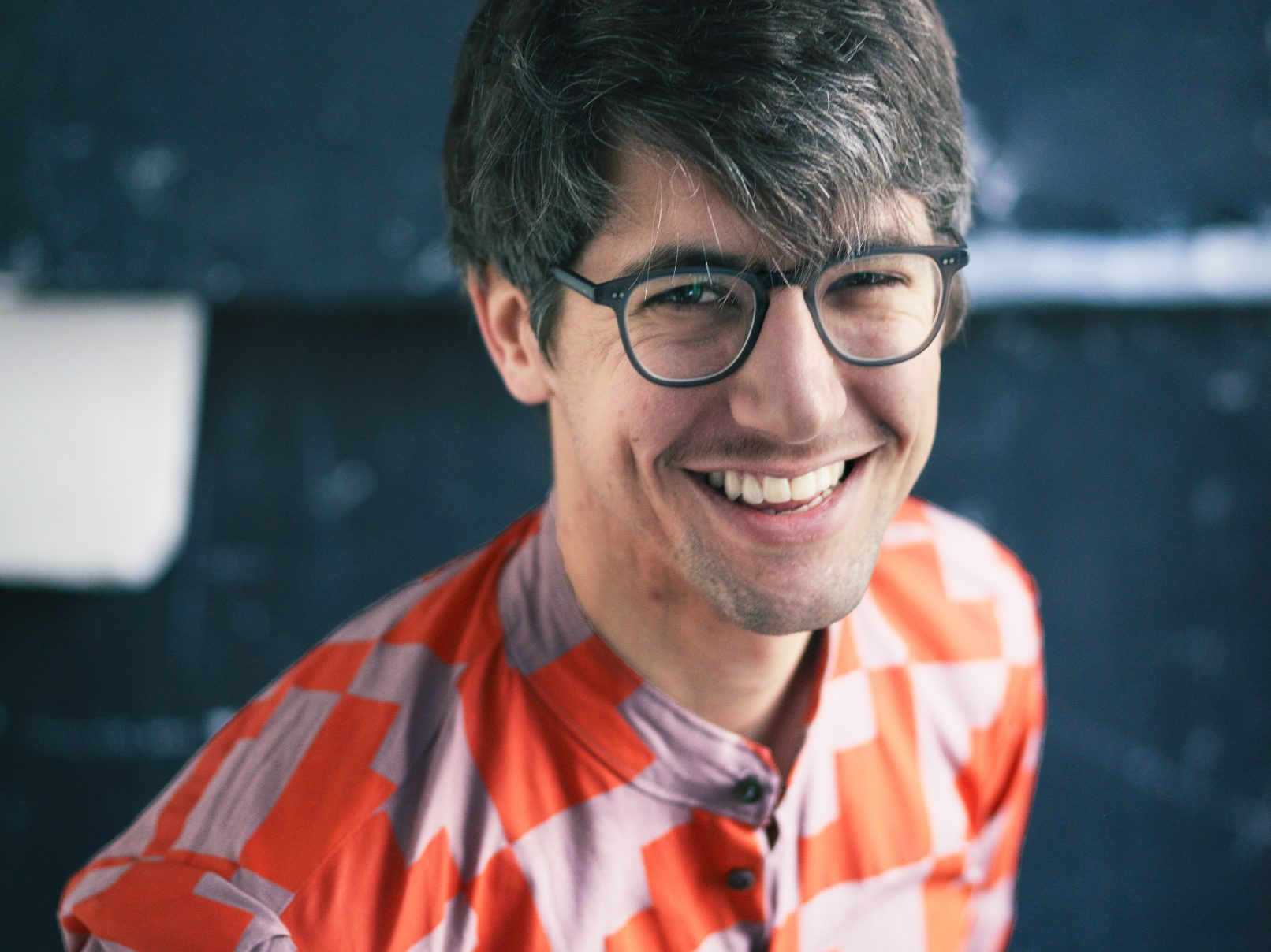
Emanuel Gollob (AT) is an artist and researcher investigating today’s relationships between humans, artificial intelligence & robots with the goal of making alternative ones bodily experienceable. In parallel, his work traces the change in human perception in connection to digitalization. Gollob graduated from the University of Applied Arts Vienna with a diploma in Design Investigation (2019). From 2020 to 2021, he was an artist in residence at MindSpaces, an EU research project in the STARTS initiative framework. Since 2020, he has been a PhD candidate and researcher at the University of Arts Linz with a particular focus on the performativity in human-robot encounters. In 2023, he was a guest artist at the ZKM | Center for Art and Media in Karlsruhe and the European Media Art Platform (EMAP).
Gollob’s work has recently been exhibited at various international institutions and conferences, including the Smithsonian Arts + Industries Building, Washington DC (2021); Science Gallery Melbourne (2021); Art Science Museum Singapore (2022); HEK Basel (2023), ISEA (2024), Nvidia GTC (2025) and ACM/IEEE International Conference on Human-Robot Interaction (2025).
Wed., 29.01.2025: Tamara Lorenz

Perspectives on Embodiment: Robots and Virtual Reality
- Tamara Lorenz
- Embodied Interactive Systems Lab
- Center for Cognition, Action and Perception (CAP)
- University of Cincinnati
Robotics and Virtual Reality are envisioned to serve us in infinite applications, including healthcare, education, manufacturing, and other areas of public concern. The assumption is that we can use virtual reality in lieu of physical reality to test theories, plan surgeries, or design products, including interactions with robots. We also assume that we can move in and out of virtual reality by embodying virtual avatars or embody robotic prosthetics as if they were our own, i.e. project or expand our sense of embodiment. While the promise is great, we have rarely stopped to ask what the implications for behavior are in virtual spaces, and if performance and experience transfer to physical reality one-to-one.
In the Embodied Interactive Systems Lab, we have therefore started to investigate two different concepts related to embodiment: 1) if having a physical vs. a virtual body matter for how we interact; and 2) how can we induce and measure sense of embodiment in a virtual reality setting. In my talk, I will outline these research questions and share our insight to date about implications of interacting with physical or virtual robots, as well as the problems and implications around measuring sense of embodiment using the popular Rubber Hand Illusion paradigm.
Short Bio
Dr. Tamara Lorenz is an Associate Professor holding a joint appointment in Psychology, Mechanical Engineering, and Electrical Engineering at the University of Cincinnati. Her research focusses on human- machine interaction (HMI) with new and emerging impact-technologies such as robots, AI, and Virtual Reality. Dr. Lorenz’ research takes a holistic transdisciplinary approach that ranges from basic to applied research, with major applications in healthcare and industry 5.0. Her mission is to promote transdisciplinary approaches to problem-solving and humane technology development. Dr. Lorenz heads the Embodied Interactive Systems Lab at UC and serves as Director for the Center for Cognition, Action, and Perception (CAP). She has been a co-founder for the Institute of Research in Sensing, and the Industry 4.0/5.0 Institute at UC.
Tuesday, 21.01.2025: Lennart Hamm
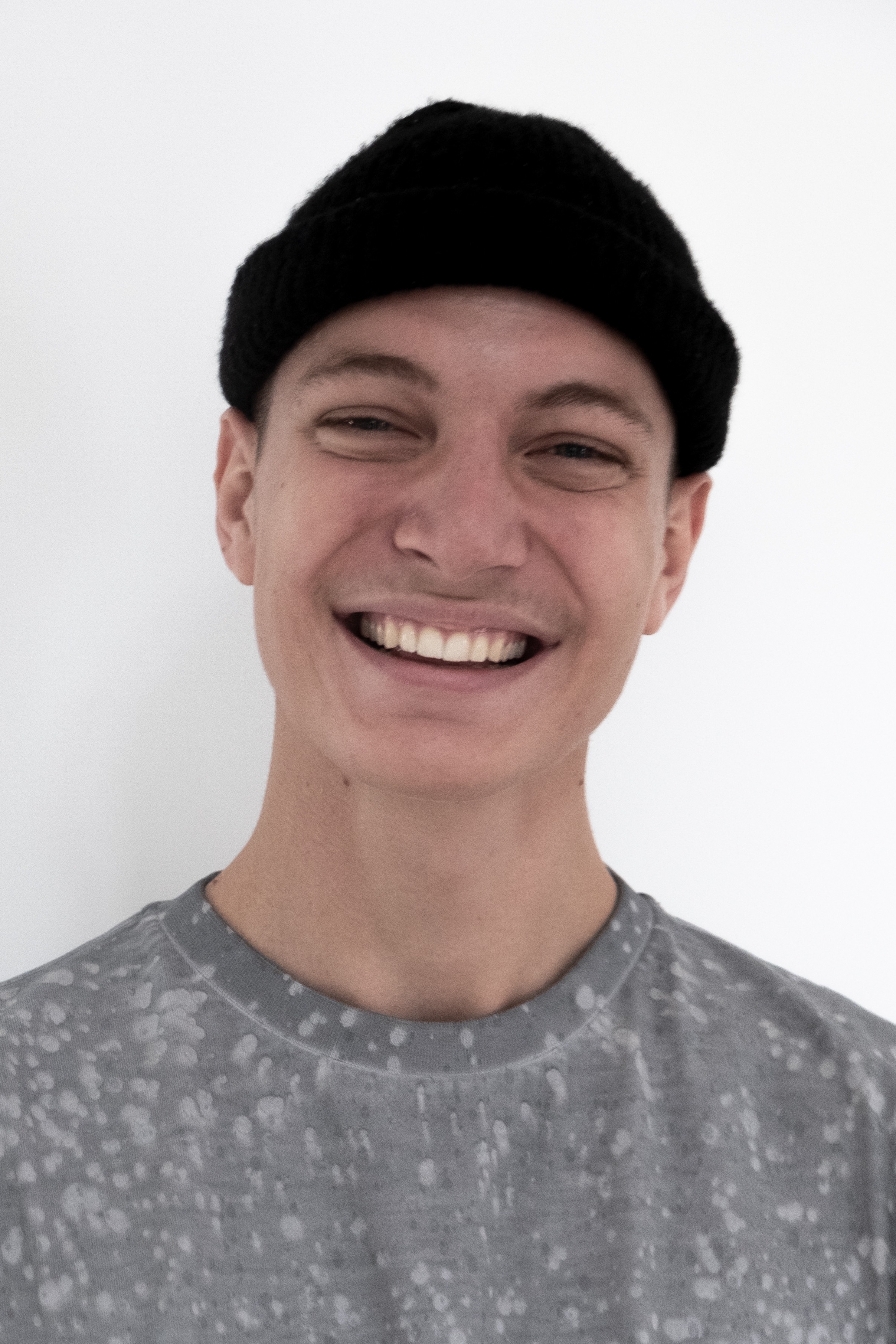
In der Forschungsgruppe 210-02 Hochbau und Gebäudeerhaltung untersuchen wir einen Bauprozess für die Adaption von Bestandsgebäuden. Dazu haben wir zwei große Themenbereiche: “ReDesign” und “Make”. ReDesign setzt sich mit der Zustandsanalyse und Entwicklung von Strategien für die Zukunft bestehender Gebäude auseinander. Make knüpft daran an und untersucht wie “Computational Design and Fabrication” zur Instandhaltung oder Verbesserung von Bauteilen in der Gebäudehülle beitragen können. Dabei liegt der Fokus auf der Entwicklung eines “Design for Disassembly”-Systems. Digitale Modelle sollen der Optimierung integraler Strukturen dienen. Uns geht es dabei vor allem um den wiederholten, reduzierten Einsatz von Ressourcen . Physisch möchten wir Themen wie Human-Robot-Interaction/Collaboration nutzen, um komplexe Systeme unterschiedlicher funktionaler Elemente zu montieren und zu demontieren. Besonderer Fokus liegt dabei auf feedback loops zwischen Fabrikation und digitalem Modell, beziehungsweise der Interaktion des Menschen innerhalb dieser digitalen Fertigungsprozesse.
In research group 210-02 Building Construction and Building Conservation, we are investigating a construction process for the adaptation of existing buildings. To this end, we have two major subject areas: ‘ReDesign’ and ‘Make’. ReDesign deals with the analysis of the condition of existing buildings and developing strategies for the future of these. Make builds on this and investigates how ‘Computational Design and Fabrication’ can contribute to the maintenance or improvement of components in the building envelope. The focus here is on the development of a ‘design for disassembly’ system. Digital models are to be used to optimise integral structures. We are primarily concerned with the circular, reduced use of resources. Physically, we want to investigate topics such as human-robot interaction/collaboration to assemble and disassemble complex systems of different functional elements. A particular focus here is on feedback loops between fabrication and the digital model, or the interaction of humans within these digital manufacturing processes.
Friday, 13.12.2024 (12:15-13:00): Carolin Stellmacher
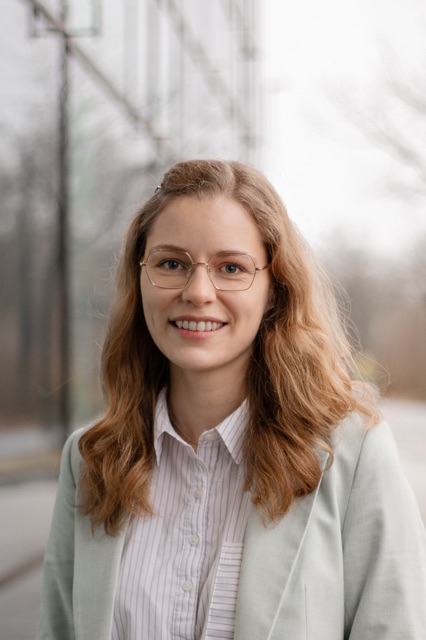
Augmenting Virtual Object Perception Through the Design of Haptic Technology
Carolin Stellmacher has focused her PhD on advancing haptic technology to enhance multisensory experiences in immersive environments. By combining hardware-based approaches, such as the development of haptic prototypes, with software-based pseudo-haptic illusions, her work leverages the perceptual benefits of both physical and virtual interactions. In this talk, Carolin will present her projects on delivering sensory stimulation to enable VR users to feel the weight of virtual objects during the interaction. More recently, she has started to explore the use of mobile devices as always-available alternatives to specialised controllers, identifying user-derived insights into smartphones’ potential for delivering a variety of haptic sensations and enabling novel interaction methods in mixed reality (MR). Looking ahead, Carolin aims to translate these findings into innovative prototypes of haptic smartphones that demonstrate how ubiquitous devices can redefine haptic interactions in MR experiences.
Tuesday, 10.12.2024 (12:15-13:00): Kaisa Väänänen
Human-Centered Design for Urban AI Interactions and Literacy Applications of Artificial Intelligence are becoming prevalent in all areas of society, including urban environments. While research and development of AI technologies have taken major leaps, understanding the human perspective of AI in people’s everyday lives is still in its early stages. In my talk I will focus on how AI’s design qualities, such as proactivity, capability to learn, and embodiment, can be used to advance citizens’ experiences and inclusion. I will present two cases of design research for urban AI interactions: Intelligent agents for residential community interactions in Nordic Superblocks, and advancing AI transparency and literacy in public urban spaces. Kaisa Väänänen is a full professor of Human-Technology Interaction in Tampere University, Finland. Kaisa has over 25 years of experience of interdisciplinary research both in industry and academia. Kaisa is passionate about understanding how human needs and experiences can be supported by novel technologies. Currently, she focuses on Human-Centered AI design research and how AI-powered solutions can advance sustainability. Kaisa was the general co-chair of ACM CHI’23 conference, and in 2025, she is co-organising Intelligent User Interfaces, IUI’25. In 2022, Kaisa was selected as an ACM Distinguished Member for her long-standing contribution to the field of computing. https://research.tuni.fi/kaisa-vaananen/
Tuesday, 26.11.2024: Franziska Babel
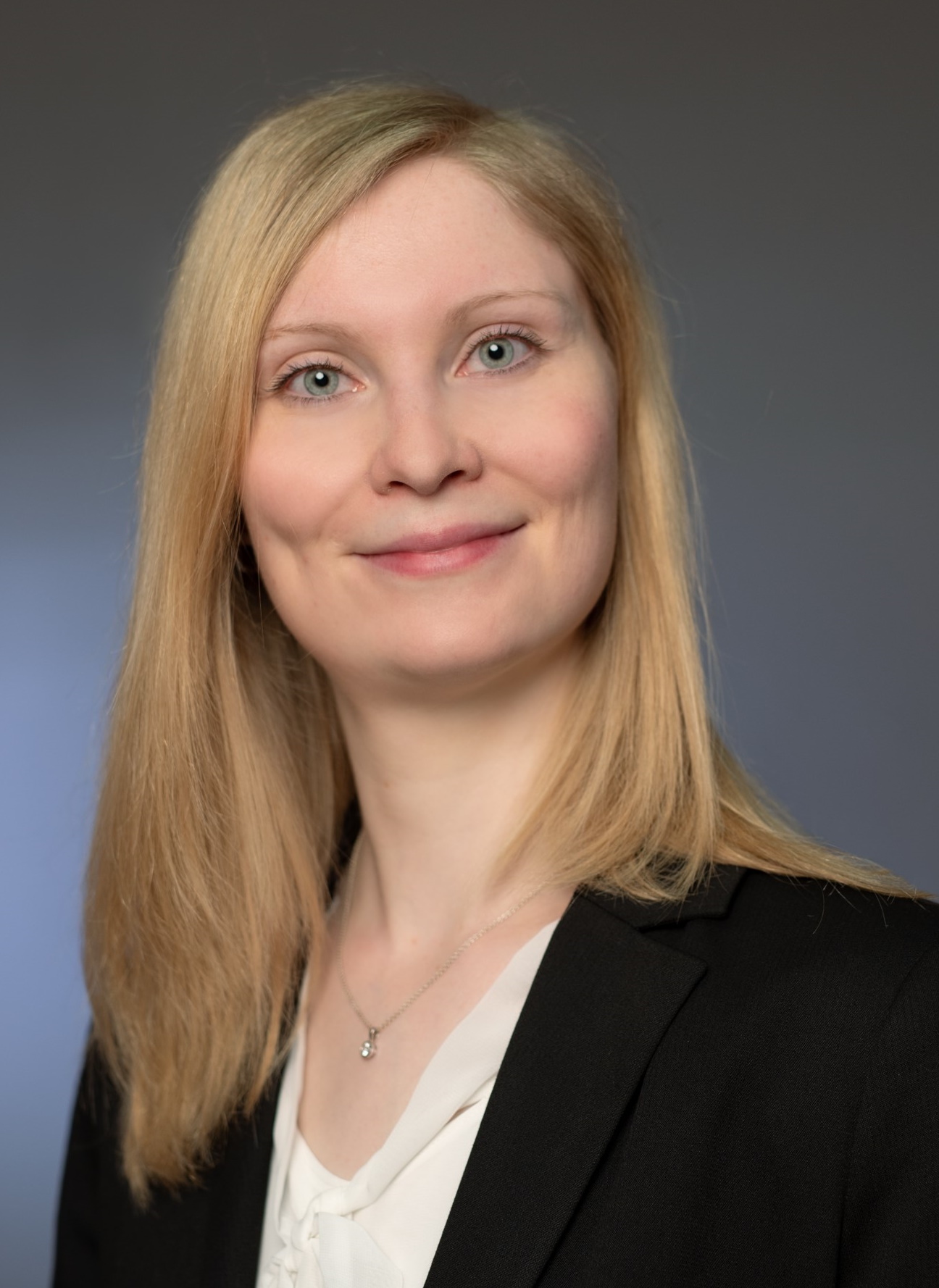
Designing for the Unknown and the Unexpected: Hidden Interactions in Public Service Robot Deployments The public deployment of service robots such as cleaning and delivery robots, as well as autonomous vehicles like cars and shuttle buses, represents a unique case for human-centered design: we face unknown interactors and unexpected interactions. How to design for the unknown and the unexpected? This talk delves into the overlooked human factors in public service robot deployment, highlighting real-world challenges and lessons-learned: cyclists forced to compete with autonomous minibuses for space, unsupervised children touching cleaning robots and why we do not think of the recipient of a delivery robot during conflicts. Franziska Babel is a postdoctoral researcher at the Information and Computer Science Department in Linköping, Sweden. She has a background in Engineering Psychology, Human Factors and user-centred design with a touch of cognitive science and social psychology. Her research interests cover techno-psychological processes such as acceptance, trust and compliance during social decision-making with autonomous artificial agents such as service robots and vehicles. This includes power dynamics, persuasion and conflicts in human-agent interactions.
Wednesday, 20.11.2024: Sebastian Feger

Smart Home Privacy: On Tangibility and Beyond for Inclusive Privacy Privacy is a core concern in increasingly connected smart homes that relates to devices owners, passenger users, and guests. In this talk, I provide an overview of my research around tangibility and additional future-facing concepts for creating inclusive smart home privacy solutions.
Tuesday, 22.10.2024: Clara-Maria Kutsch

„Das ist problematisch. Die Wiener Kritische Diskursanalyse.“
Im Zuge der Aufdeckung Kurt Waldheims nationalsozialistischer Vergangenheit formierte sich am Institut für Sprachwissenschaft der Universität Wien die interdisziplinär geprägte Wiener Kritische Diskursanalyse. Als Forschungsprogramm, das gesellschaftliche Verhältnisse in Hinblick auf die Relation von Sprache – Macht – Ideologie hinterfragt, strebt sie mit ihrer kritischen Grundhaltung einen gesellschaftlichen Wandel und langfristig eine Verbesserung von Kommunikationsverhältnissen an. Denn – und hier liegt die Relevanz der Methode – Sprache ist und bleibt ein zentrales Medium von Diskriminierung, das nicht selten den Weg zu problematischen Handlungen ebnet. Doch was genau ist sie, diese Wiener Kritische Diskursanalyse, wo liegen die Grenzen eines Diskurses und wie untersucht man sie?
„That’s problematic. Viennese Critical Discourse Analysis“
While uncovering Kurt Waldheim’s national-socialist past, the Institute for Linguistics of the University of Vienna conceptualized the interdisciplinary approach of Viennese Critical Discourse Analysis. As a research program questioning societal conditions regarding the relations of language – power – ideology and aligned with a critical attitude, the approach aims at societal change and long-term improvement of communicative relationships. The relevance of the method lies in showing how language remains a central medium for discrimination that more often than not opens the doors to problematic actions. But what exactly is it, this Viennese Critical Discourse Analysis, where lie the boundaries of a discourse and how do you research them?
Tuesday, 18.06.2024: Verena Fuchsberger - Material Manifestations of Remote Relationships
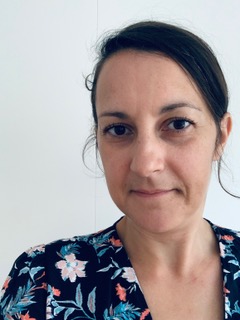
Being together over distance can be challenging, despite the variety of digital tools being available that allow contact over distance. Focusing on the case of remote relationships of grandparents and grandchildren, I will discuss characteristics of such relationships, the role that tangibility plays in interactions over distance, and what design possibilities there are for materializing remote relationships that address enjoyable, but also wistful aspects.
Tuesday, 11.06.2024: Martin Warnke - Media Cultures of Machine Translation: A Perspective between Cultural Studies and Technology

The shift from linguistics to Big Data offers the promise of accessibility to the vast knowledge of the world without linguistic barriers and continues to leave its mark. Beginning from the radical differences between intellectual (i.e., human), meaning-centered translation and machine-based translation freed from the constraints of semantics, Benjamin’s notion of »pure language« and the computerized large language models are now being thought alongside one another – and in light of current debates within cultural studies, these differences are being reassessed.
Tuesday, 21.05.2024: Doris Allhutter - What is critical about critical design?
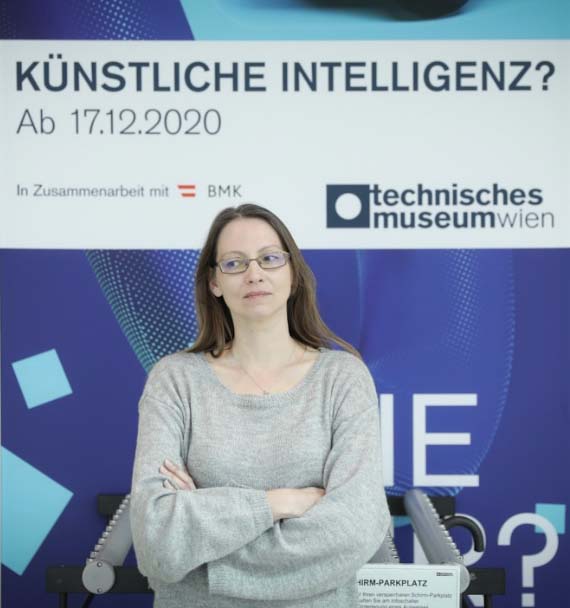
As users of digital technologies, we often find ourselves in a paradox: we struggle with how they endanger our privacy, restrict our agency, and materialize discriminatory worldviews – at the same time, we might love engaging with tech that inspires new ways of sociality, co-creation, and collectivity.
Monday, 13.05.2024: Ruadhán James Flynn - Whose Standpoint Matters? Imagining Disability Justice
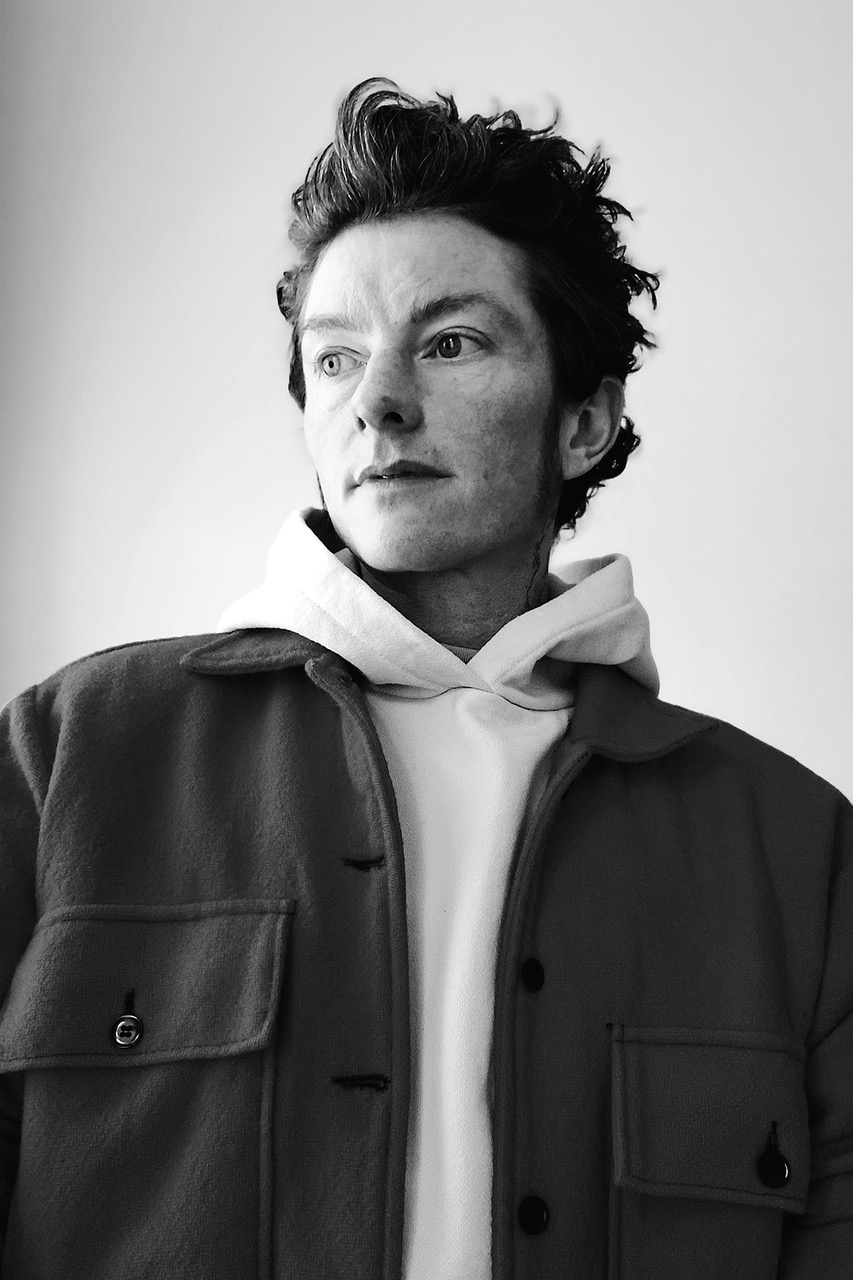
Disability Justice is an “intersectional, multisystemic” way of thinking about disability and accessibility (Lazard, 2019). In this talk, I will give a brief outline of standpoint theory, and use it to argue that disability justice can only be imagined and achieved when disabled people’s individual and collective knowledge dominates in accessibility design and implementation.
16.04.2024: Julie A. Adams - Towards Adaptive Human-Robot Teams: Workload Estimation

The ability for robots to adapt to humans requires algorithms that allow robots to detect human performance in real time. The multi-dimensional workload algorithm incorporates physiological metrics to estimate overall workload and its components.
09.04.2024: Renate Baumgartner - The role of participatory design in developing inclusive AI in healthcare
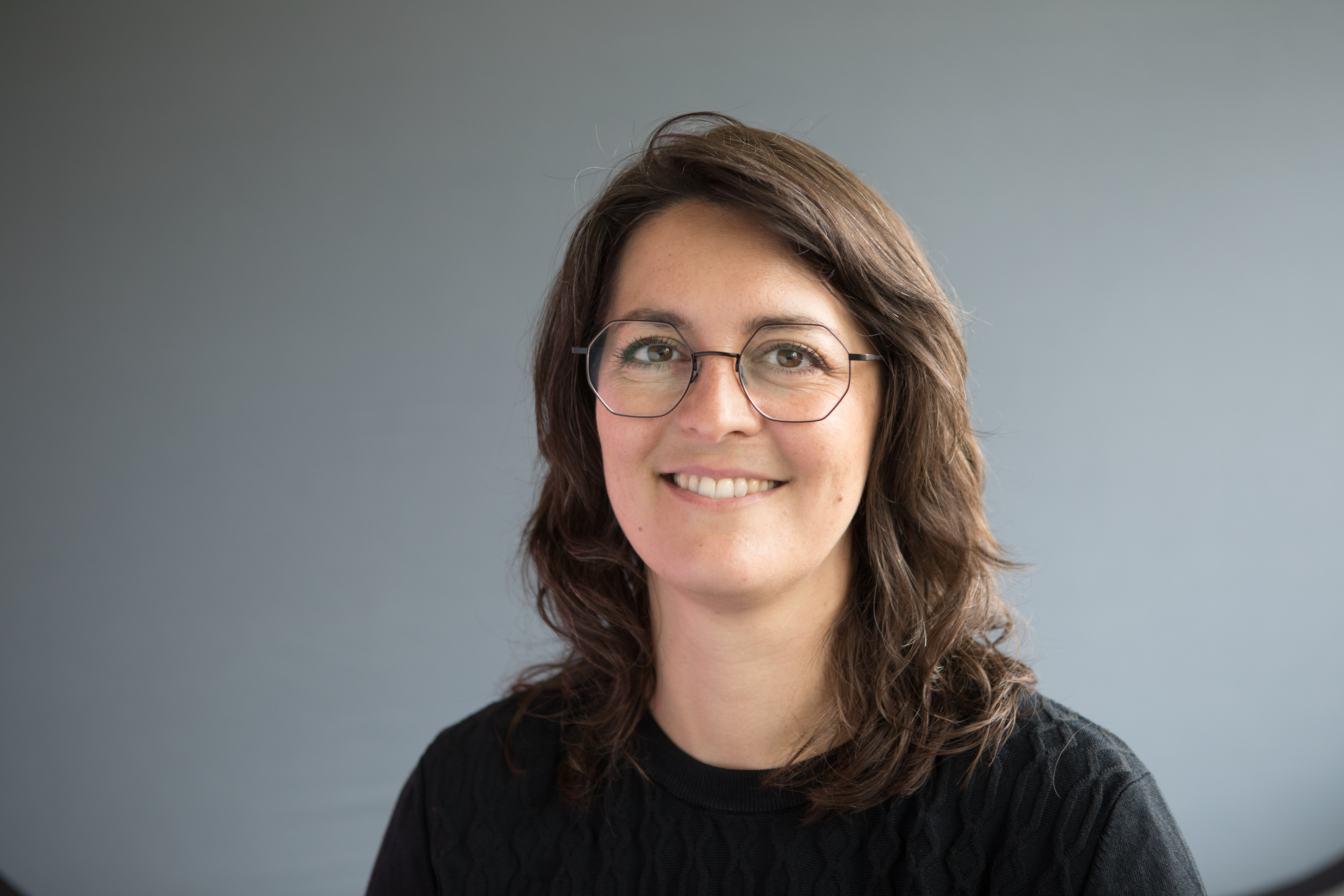
Participatory design is one possibility among many to develop inclusive digital health technologies by involving different, also marginalized, stakeholders.
05.03.2024: Mattia Thibault - Semiotic inquiries and design speculations: two mindsets in dialogue
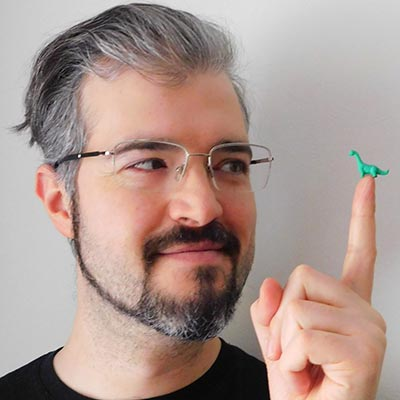
Design is a forward-looking activity, prefigurating future contexts and interactions. Semiotics looks backwards: meaning is often assigned a posteriori.
16.01.2024: Alejandra Gomez Ortega - Data Donation in Practice: Challenges and Lessons Learned
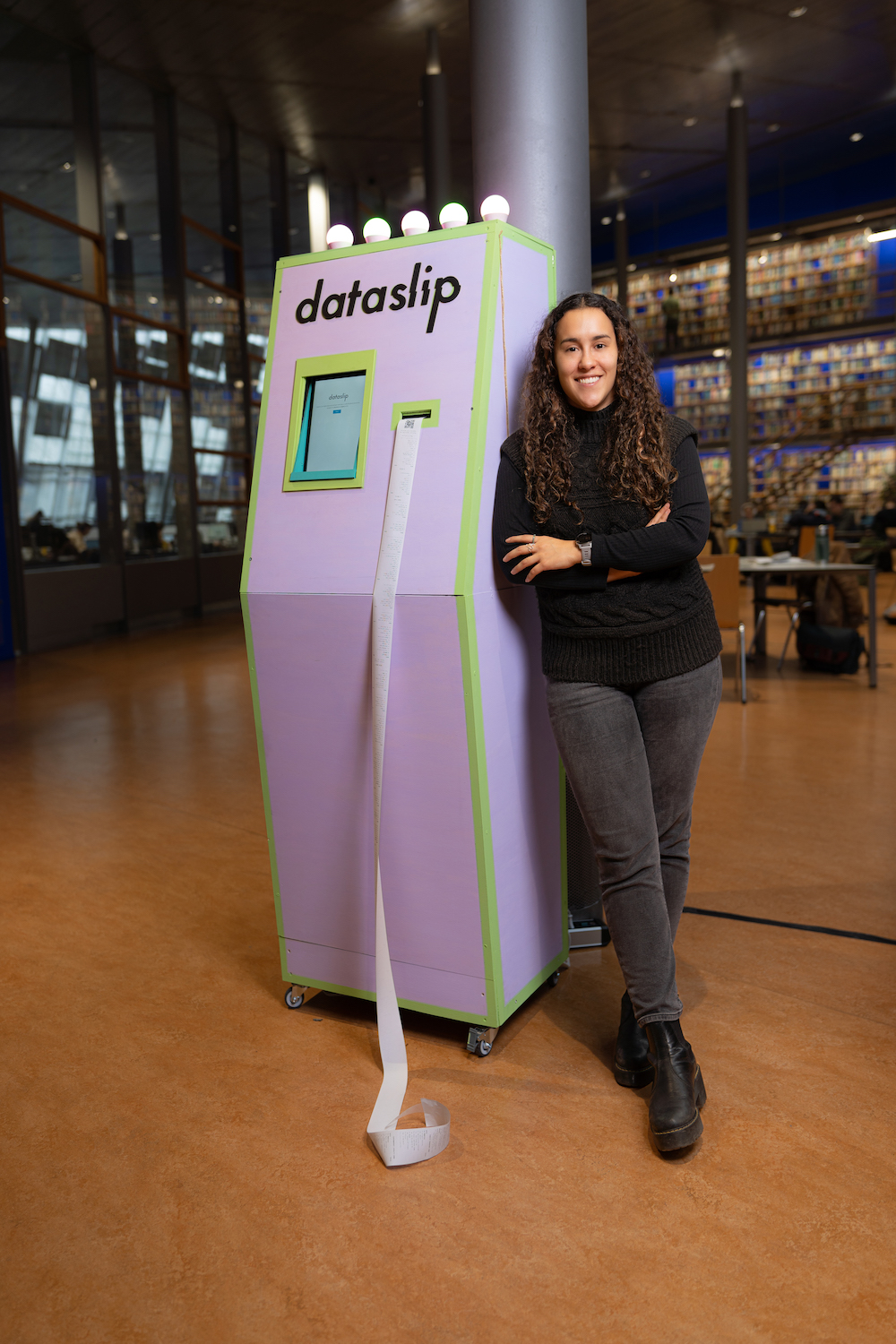
Alejandra’s research investigates data donation as an alternative way for designers and researchers to collaborate with people through their data.